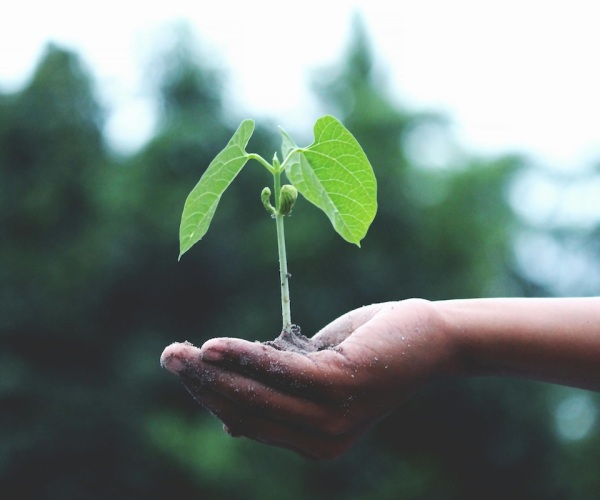The Weight of the World: The Weight of the World:
Managing Climate Anxiety
There’s a unique kind of ache that creeps in when you’re folding your child’s laundry and suddenly wonder what sort of planet they’ll inherit. If you’ve found yourself awake at night thinking about rising temperatures, wild weather events, or the state of our oceans, you’re not alone. As people, our emotional radar is tuned into the future, and climate change presses every button. But how do we sit with such big fears, raise conscious children, and still make room for joy?
Eco-Anxiety Is Real… and you’re not “overreacting” “Eco-anxiety” is the term psychologists now use to describe the chronic fear of environmental doom. It’s not a disorder, it’s a healthy, human response to a world in crisis. For many people, this anxiety hits hard. We are sandwiched between generations: looking out for our children while also worrying about aging parents. We read the headlines and imagine our kids’ futures, not just what careers they’ll have, but whether clean air, fresh water, or predictable seasons will be part of the picture. Add to that the emotional load of mental lists, caregiving, and community roles, and the idea of “doing more” for the planet can tip us into burnout. But here’s the thing: we don’t need to carry the world alone.
What Climate Anxiety Does to the Mind and Body
From a psychological standpoint, long-term anxiety (even if it’s climate-related) can:
● Trigger chronic stress responses in the body (fatigue, muscle tension, gut issues)
● Impair sleep and concentration
● Lead to emotional numbing or avoidance
● Contribute to feelings of guilt, helplessness, or even shame
This can create what psychologists call a freeze loop, where the threat feels too big to process, so we do nothing, which fuels more guilt. But there is a healthier path.
From Overwhelm to Empowerment: Managing Your Own Climate Feelings
You don’t need to become an activist overnight, or move off-grid to be “doing enough.” Try starting with these psychological strategies:
1. Name It to Tame It
Acknowledge your feelings. Talk to a trusted friend, journal, or see a therapist who understands eco-anxiety. Naming the fear brings it into the light.
2. Shrink the Problem
While climate change is massive, your circle of control isn’t. Focus on what you can do: reduce waste, support ethical companies, write to your local MP. Small acts add up.
3. Protect Your Peace
Monitor your media diet. Constant doom-scrolling amplifies stress. Seek out stories of solutions, innovators and communities making a difference.
4. Connect with Nature
Reconnecting with the natural world, even your backyard or a local park, reminds your nervous system that you’re part of something, not separate or powerless.
5. Model Healthy Engagement
Our kids don’t need perfect parents. They need real ones who show them how to care, act, rest and hope, all at once.
Helping Our Children Cope with Climate Worries
Children today are more informed and more affected than ever. Many are learning about climate change as young as 5 or 6, and by adolescence, they may carry a real emotional burden.
Here’s how we can help:
1. Create Safe Spaces to Talk
Encourage your child to share what they’ve heard or feel. You don’t need to have all the answers. Saying, “That’s a big worry — I feel it too sometimes,” can go a long way.
2. Validate, Don’t Dismiss
Avoid minimizing it with “Don’t worry about it” or “You’re too young to think about that.” Instead, validate with, “It makes sense to feel worried when we hear those things. Let’s talk about what we can do together.”
3. Focus on Action and Agency
Young people feel more empowered when they’re part of the solution. Help them start a veggie patch, write a letter to a politician, join a local clean-up, or switch to reusable school lunch packaging. These things build hope.
4. Balance Truth with Hope
We don’t need to sugar-coat the facts, but we can emphasize the efforts being made: scientists, activists, community leaders, and youth just like them standing up for the Earth. Remind them: change is possible.
We parent better when we regulate ourselves first.
Ultimately, our children will take their cues from how we feel — not just what we say. If we’re riddled with guilt, panic, or helplessness, it’s hard to help them build resilience. So tend to your emotional wellbeing with the same love you give your kids. You deserve that care, too. As parents, we may not be able to fix everything, but we can raise humans who are thoughtful, courageous, and kind, and that might be the most powerful contribution of all. If you need some help navagiting this, reach out to the team at Propser Health Collective.
